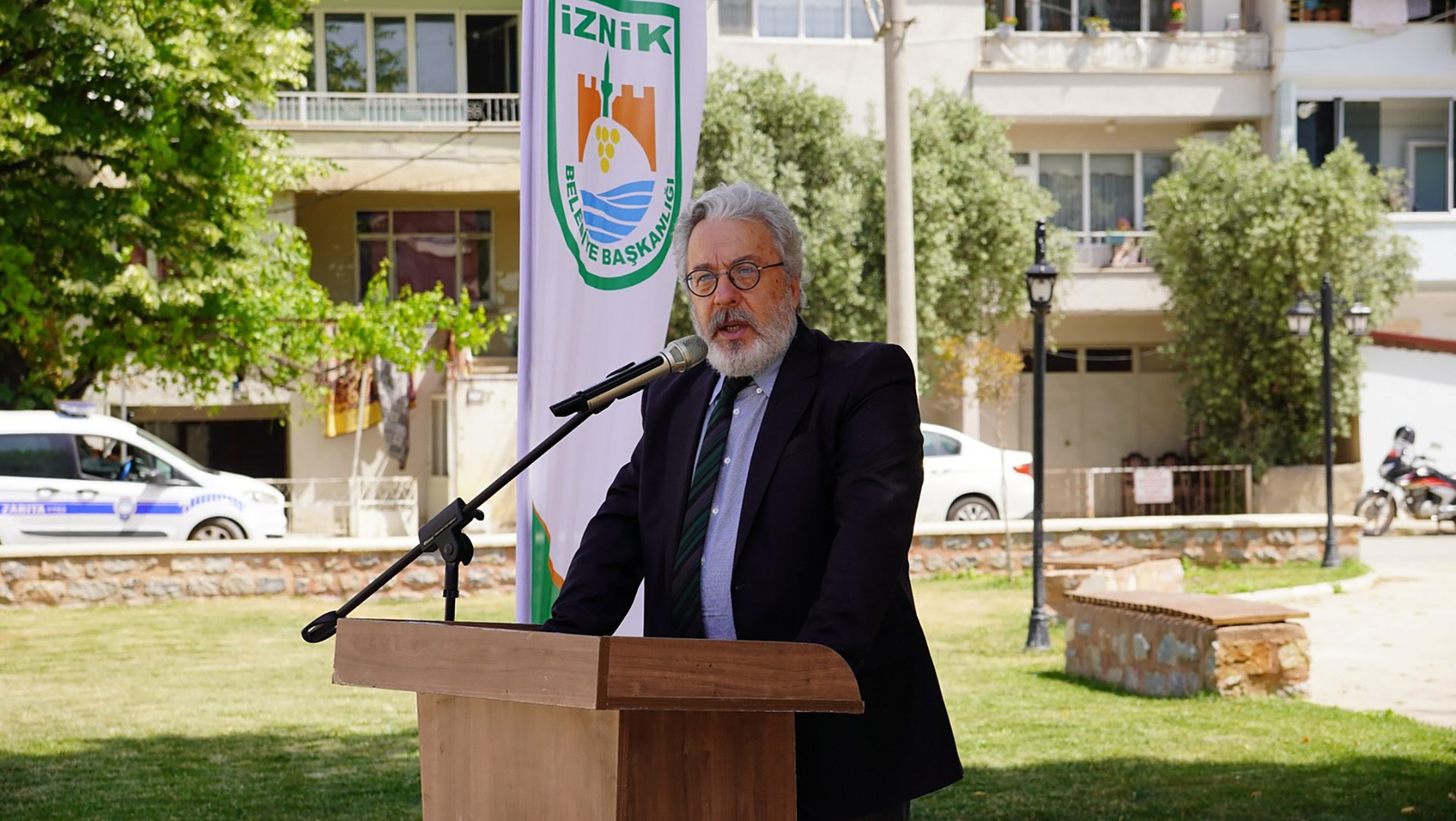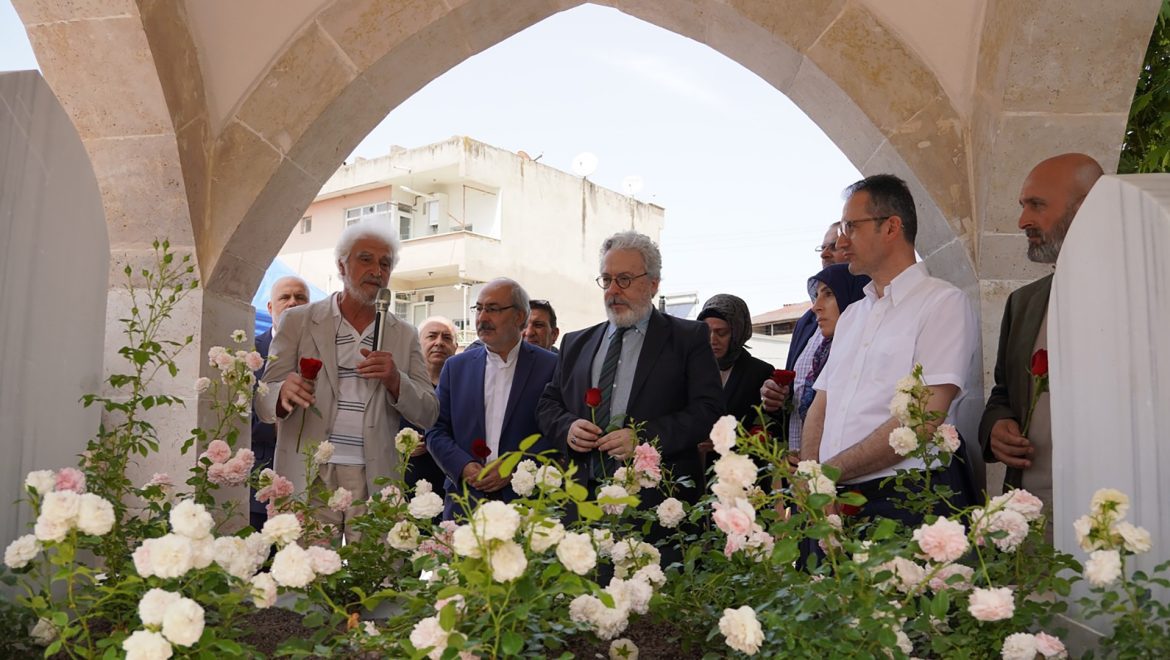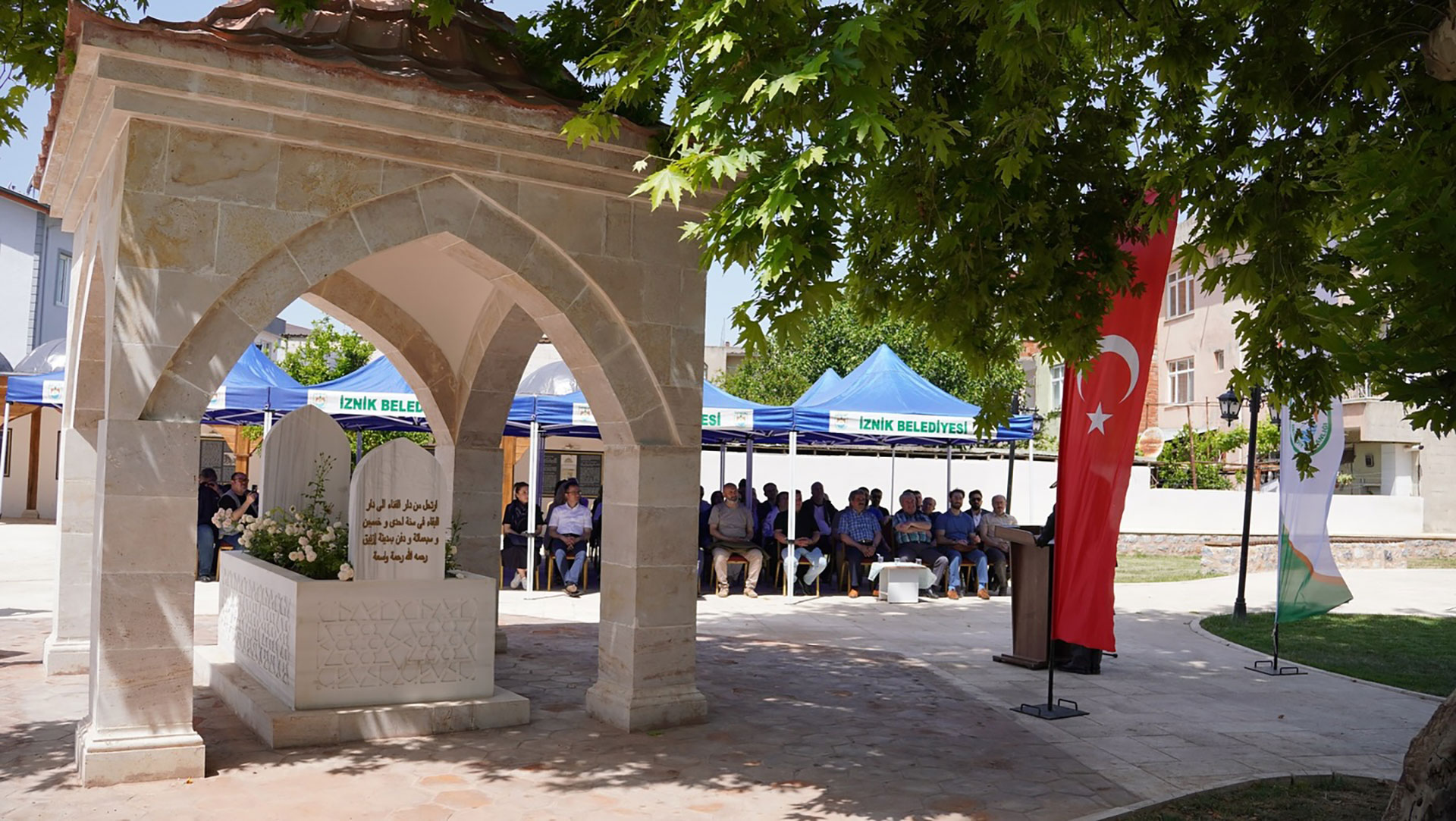A commemorative meeting was conducted around the tomb of Dawūd al-Qayṣarī (1260-1350, “of Kayseri”) on 24 May 2025 in İznik, Bursa, under the coordination of İznik Governorate and IRCICA. The commemorative meeting featured two scholarly addresses, delivered by Prof. Dr. Mahmud Erol Kılıç, Director General of IRCICA, and Prof. Dr. Hasan Basri Öcalan, Head of the History Department of Bursa Uludağ University. The program was officiated by the Governor of İznik Mr. Arif Karaman, Deputy Mayors Mrs. Zeliha Peşte and Faruk Davarcı, and attended by interested researchers in the fields of religious and philosophical sciences.
Dawūd al-Qayṣarī was an eminent scholar of fiqh, kalam, tafsir, and mystical philosophy as well as astronomy and natural sciences who lived during the foundation period of the Ottoman State. He is known as the “first muderris/instructor” since Orhan Gazi, the second sultan, who conquered İznik in 1331, appointed him as chief instructor of the medrese he established there. al-Qayṣarī has had an important place in Islamic religious sciences and wrote many works, most well-known being his commentary on Ibn Arabi’s Fuṣuṣ al-hikam titled Matla’u husus al-kilem fi ma’ani fusus al-hikam. Qaysari combined the esoteric and exoteric sciences within his fields of thought, adopted the Wahdat al-wujūd (“the Unity of Being”) theory developed by earlier and contemporary philosophers such as Ibn al-Fāriḍ, Ibn Arabi, and Abd al-Razzaq Kāshānī, and grasped the material and the spiritual worlds as an indivisible, single whole universe that is a manifestation of the attributes of Allah Almighty. During the commemorative program in İznik, Prof. Kılıç and Prof. Öcalan underlined the role and importance of al-Qayṣarī in the history of Islamic sciences and philosophy, particularly sufism, explained his system of thought and analysis, and briefed the audience on his works.






